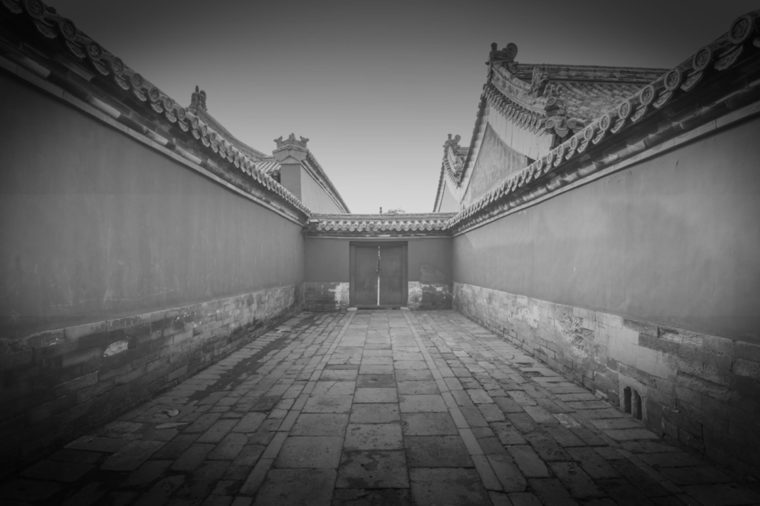
The beautiful, sprawling Forbidden City in Beijing—made up of 980 buildings on 180 acres—is one of China's best-known landmarks. Many true ghost stories have also come from within its walls. From the 15th century through the early 20th century, the Chinese emperor lived there, but now it's rumored to be haunted by the ghosts of concubines. In 1421, Emperor Yongle ordered nearly 3,000 ladies-in-waiting associated with his harem, all of whom lived in the Forbidden City, to be slaughtered, because he thought that a beloved concubine had been poisoned. He spared some of his favorites in the harem, but on the day of his funeral, 16 courtesans were hung with nooses of white silk. Today, in the Forbidden City, a lady with black hair has been seen running from a ghostly soldier; sounds of screaming, weeping, and sword-fighting have been heard; and specters of dead bodies, pools of blood, and pieces of white silk have been glimpsed. The Forbidden City is a UNESCO World Heritage Site, and it is open to the public, although it closes before nightfall.
No comments:
Post a Comment